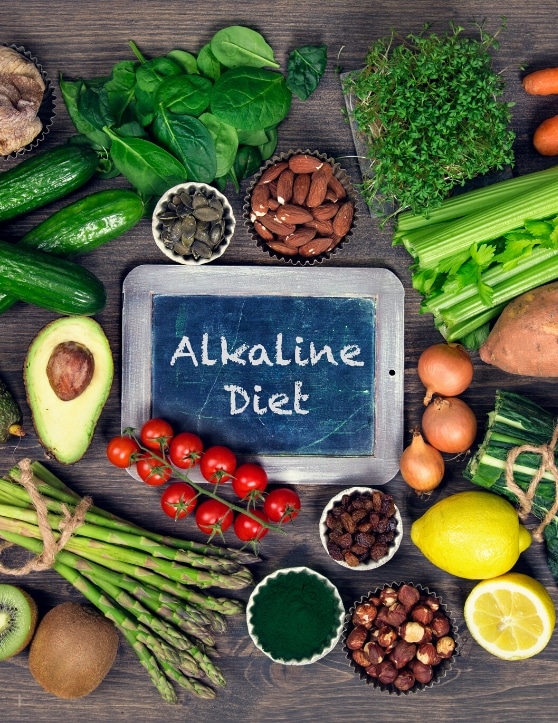Does Anxiety Cause Weight Gain?
Feeling stressed lately? It's easy to turn to comfort food, but have you noticed your waistline expanding along with your worries? There's a connection between stress, anxiety, and weight gain that might surprise you.
Anxiety produces long-term stress, which in turn leads to weight gain.
Did you know that according to a 2017 survey by the American Psychological Association, 3 out of 4 Americans have experienced stress symptoms in the past month?
It's pretty common!
Whether it's from munching on comfort food or your body reacting to higher levels of cortisol, managing stress is key to avoiding those unwanted pounds. You know what – you can reduce your weight by keeping track of your cortisol levels. Stick around to learn more about how stress impacts your weight and what you can do about it!
Does Anxiety Cause Weight Gain?
In short, yes! But how?
Let's break down how anxiety can contribute to weight gain.
Cortisol, often dubbed the stress hormone, plays a significant role. When you're anxious, your body releases cortisol, which tends to accumulate fat around your midsection. This can make weight management a challenge for those dealing with stress.
Secondly, anxiety can sometimes trigger overeating. This happens for a couple of reasons. Some individuals turn to food as a way to cope because it can release feel-good chemicals like endorphins, temporarily improving mood.
Additionally, heightened stress levels may increase feelings of hunger in some people. However, not everyone reacts this way, and these changes in eating habits might be subtle, making them easy to overlook.
Furthermore, anxiety can lead to a decrease in physical activity. Some individuals may find themselves sleeping more or spending more time sedentary at home due to feeling drained by their anxiety. With fewer calories being burned through activity, weight gain becomes more likely.
So, while anxiety isn't always the direct cause of weight gain, it can certainly play a role through hormonal changes, altered eating habits, and reduced physical activity. Understanding these connections can help manage weight loss.
Funnily, the role can be reversed.
How does weight gain cause anxiety?
The connection between anxiety and weight gain is intricate. Firstly, weight gain itself, along with the factors causing it, can induce anxiety. Take inactivity, for example. When we don't move our bodies enough, it can lead to anxiety disorders. Our bodies are meant to be in motion, and when we neglect this, it can affect our mental well-being.
Additionally, weight gain can influence breathing patterns, potentially triggering anxiety symptoms and panic attacks. While unhealthy foods don't directly cause anxiety, they can contribute to it, alongside poor sleeping habits and the aging process, which can independently lead to both weight gain and anxiety.
Furthermore, gaining weight can dent our self-confidence, prompting feelings of anxiety. All these factors contribute to the complex relationship between anxiety and weight.
To grasp the link between anxiety and weight gain, it's essential to understand cortisol and its role.
How does Cortisol affect weight loss?
Cortisol, a hormone released during times of physical or mental stress, is part of the body's “fight-or-flight” response, just like adrenaline and norepinephrine. It temporarily slows down non-essential bodily functions, such as metabolism, while boosting essential processes to handle immediate threats.
When cortisol levels rise, it triggers various effects. It elevates blood pressure and insulin production while suppressing the immune system. This hormonal surge also leads to cravings for fatty and sugary foods as blood sugar levels drop due to increased insulin.
While this response was beneficial for our ancestors facing immediate dangers, today's stress tends to be more prolonged. Over time, persistently high cortisol levels can cause significant harm to our bodies.
Research in 2017 linked cortisol to overweight, particularly focusing on carrying excess weight around the waist, known as visceral fat. Further, a study in 2015 highlighted how stress affects metabolism and influences cravings for unhealthy foods high in fat and sugar, contributing to weight gain.
Cortisol, often dubbed the “stress hormone,” plays a crucial role in our body's response to stress. However, when cortisol levels become chronically elevated, it can lead to various health issues, especially for females.
Symptoms of High Cortisol in Females:
Weight Gain:
One common symptom of elevated cortisol levels is unexplained weight gain, particularly around the abdomen.
Fatigue:
Experiencing persistent fatigue and low energy levels, even after adequate rest, could be a sign of high cortisol.
Anxiety and Depression:
Chronic stress can lead to increased feelings of anxiety and depression, often accompanied by mood swings.
Sleep Problems:
Difficulty falling asleep, staying asleep, or waking up feeling unrefreshed can indicate disrupted cortisol levels.
Digestive Issues:
High cortisol levels may contribute to digestive problems such as bloating, constipation, or diarrhea.
Irregular Menstrual Cycles:
For women, imbalanced cortisol levels can disrupt menstrual cycles, leading to irregular periods or other menstrual issues.
How To Lower Cortisol Naturally?
Practice Stress Management Techniques:
Incorporate relaxation techniques such as deep breathing, meditation, yoga, or mindfulness into your daily routine to help lower cortisol levels.
Get Adequate Sleep:
Prioritize quality sleep by maintaining a consistent sleep schedule, creating a relaxing bedtime routine, and ensuring a comfortable sleep environment.
Exercise Regularly:
Engage in regular physical activity, such as walking, jogging, cycling, or strength training, to help reduce cortisol levels and promote overall well-being.
Focus on consuming a balanced diet rich in whole foods, including fruits, vegetables, lean proteins, and healthy fats. Limit intake of processed and sugary foods, which can contribute to elevated cortisol levels.
Stay Hydrated:
Drink plenty of water throughout the day to stay hydrated, as dehydration can exacerbate stress and cortisol levels.
Prioritize Self-Care:
Take time for activities that bring you joy and relaxation, whether it's reading, listening to music, spending time in nature, or indulging in a hobby.
Remember, managing cortisol levels is essential for overall health and well-being. By incorporating these lifestyle changes and stress-reducing techniques into your daily routine, you can support balanced cortisol levels and improve your overall quality of life.
Risk Of Anxiety-Related Weight Gain
While it's natural to gain weight during challenging times, prolonged stress or anxiety and weight gain can have detrimental effects on our health.
Here are some ways long-term overweight or obesity can impact your health:
– Elevating blood pressure and cholesterol levels, and raising the risk of cardiovascular disease and stroke.
– Contributing to metabolic disorders such as Type 2 diabetes.
– Increasing the likelihood of developing certain cancers.
– Adding strain to your joints, leading to increased pain and decreased mobility.
– Potentially causing fertility issues.
– Decreasing lung function and worsening breathing conditions like obstructive sleep apnea.
– Impacting mental health.
These health consequences highlight the importance of managing stress and maintaining a healthy weight for overall well-being.
Foods That Reduce Anxiety And Help Lose Weight
Losing weight gained from chronic stress requires a comprehensive approach. One effective strategy is to focus on eating a healthier diet.
To combat inflammation, which tends to increase during times of stress, it's recommended to consume foods rich in antioxidants. These foods help reduce inflammation and protect cells from damage. Aim to incorporate a variety of fruits and vegetables into your meals to get a wide range of antioxidants.
Additionally, increasing your fiber intake can help stabilize blood sugar levels and reduce cravings. Foods high in fiber include whole grains like quinoa and brown rice, whole-grain bread, nuts such as almonds and walnuts, seeds like flaxseeds and chia seeds, and green leafy vegetables such as broccoli and kale.
On the flip side, it's essential to avoid low-nutrient, high-calorie foods that can exacerbate stress levels. Steer clear of fried foods, sugary treats like cakes and cookies, and refined carbohydrates like white bread, as these can cause spikes in blood sugar levels. When feeling stressed, it's also wise to limit caffeine intake, as it can disrupt sleep patterns and lead to overstimulation.
FAQs
A: To lower cortisol levels naturally, try incorporating stress management techniques such as deep breathing, meditation, or yoga into your daily routine. Getting adequate sleep, regular exercise, and maintaining a balanced diet can also help reduce cortisol levels.
A: Yes, some anti-anxiety medications are less likely to cause weight gain compared to others. Examples include selective serotonin reuptake inhibitors (SSRIs) like sertraline (Zoloft) and escitalopram (Lexapro). Speak with your healthcare provider to discuss medication options that suit your needs and minimize the risk of weight gain.
A: Certain anxiety medications, such as SSRIs (e.g., sertraline, escitalopram) and serotonin-norepinephrine reuptake inhibitors (SNRIs) like venlafaxine (Effexor), are associated with minimal weight gain. However, individual responses to medication can vary, so it's essential to consult with a healthcare professional to find the best treatment option for you.
A: Yes, anxiety can contribute to weight gain through various mechanisms, including increased cortisol levels, altered eating habits, and reduced physical activity.
Reference
https://www.apa.org/monitor/2017/12/numbers
https://onlinelibrary.wiley.com/doi/full/10.1002/oby.21733
https://www.ncbi.nlm.nih.gov/pmc/articles/PMC4289126/
https://www.healthline.com/nutrition/ways-to-lower-cortisol
https://health.usnews.com/wellness/articles/ways-stress-makes-you-gain-weight








